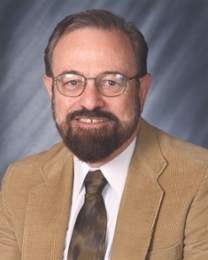American Psychological Association Division 50

A few weeks ago, I began my one-year term as President of the Society of Addiction Psychology. Our rapidly expanding division is an exciting place to be. Despite the impact of Covid-19, the Society remains healthy. Our podcast series, The Addiction Psychologist, features interesting presentations delivered using a very convenient platform, planning for the 2022 Collaborative Perspectives on Addiction conference is underway, and Linda Rinehart is chairing our preparation for the annual APA meeting next August.
An accomplishment not owned by SoAP but highly relevant is that the American Board of Professional Psychology (ABPP) has given provisional approval to the creation of the American Board of Addiction Psychology (ABAP) as a specialty program under ABPP. This is important because previously, there has been no practitioner designation specific to doctoral-level psychologists, and, increasingly, major organizations, such as the Veterans Administration and Mayo Clinic, are seeking to employ psychologists who are certified by the ABPP. Within a few months, the ABAP should start soliciting applications and conducting examinations. The relevance of this achievement to SoAP becomes clear when one considers that the five-person group that proposed and successfully championed the creation of the ABAP consisted of four former SoAP Presidents (John Kelly, Linda Sobell, Ray Hanbury, Bruce Liese) and me. Board certification is considered to reflect an evaluation of competence beyond state licensure, and it is high time for psychologists to have a way to separate themselves from the mixed bag of addiction counselors.
The Presidential theme for this year is Implementing a Public Health Approach to Addictions. Such an approach has been advocated by many for several years, but it gained considerable emphasis with the publication of the Surgeon General’s first and only report on addictions, Facing Addiction in America. There are far too many facets to a public health approach to review here, but for starters, such an approach is evidence-based and considers the full range of substance use and problems, typically viewed as continua, and promotes using a range of tactics to address personal and social health concerns. Interestingly, changes in daily life related to the pandemic, such as working remotely, have brought with them an increasing number of internet options people can use to explore their substance use and take action to change their behaviors. Well, enough discussion of a public health approach for now. Let me close by saying that just as psychologists have led the way in providing evidence-based treatments, we should also be leaders in developing diverse approaches to deal with addictive behaviors.
Mark B. Sobell, PhD, ABPP

Resources are available for those struggling with addiction and numerous effective treatments exist. Whether you are looking for help for yourself or a loved one, we encourage you to seek out help.